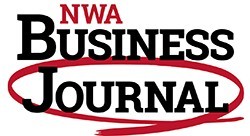Arkansas bankers, namesake of Dodd-Frank agree it shouldve been more lenient on smaller banks
by November 23, 2016 1:04 pm 264 views

Arkansas bank executives agreed with former U.S. Rep. Barney Frank, D-Mass., about this: the bank regulation bill that bears his name should have been more lenient on smaller banks.
In a radio interview Sunday (Nov. 20), Frank spoke of a mistake in the Dodd-Frank Wall Street Reform and Consumer Protection Act. Frank said the asset threshold for greater supervision of banks should have been set higher before kicking in. He would have set the threshold at $125 billion or more, instead of $50 billion, before the higher level of supervision went into effect.
Dodd-Frank was signed into law in July 2010 and was designed to be a response to the near financial meltdown of 2008 in which several large banks failed.
“The most far reaching Wall Street reform in history, Dodd-Frank will prevent the excessive risk-taking that led to the financial crisis,” according to the White House briefing room page on the law. “The law also provides common-sense protections for American families, creating new consumer watchdog to prevent mortgage companies and pay-day lenders from exploiting consumers. These new rules will build a safer, more stable financial system – one that provides a robust foundation for lasting economic growth and job creation.”
ARKANSAS RESPONSE
Frank Scott Jr., bank executive for First Security Bank, found it interesting the former representative would reveal this now about Dodd-Frank. Scott, who is also a member of American Bankers Association, explained how the “one-size-fits-all” approach to banks didn’t work and favors “tailored regulatory reform” as opposed to the previous.
While First Security Bank, with assets between $5 billion and $6 billion, isn’t in the asset threshold Frank spoke of, Dodd-Frank has still impacted smaller banks. It has resulted in the “constant consolidation of community banks,” Scott said. Larger banks were held to the same standards of smaller banks.
Former Rep. Frank also mentioned he would have indexed the asset threshold along with increasing it. Scott said this might have meant it would be “tailored based off asset size.”
First Security Bank is regulated by the Federal Deposit Insurance Corp, and the FDIC is regulated by the same rules as the Consumer Finance Protection Bureau. Frank said, however, he would not like to see the CFPB weakened and cited the recent action against Wells Fargo in which it created fraudulent accounts. On the other hand, Scott would like to see its strength reduced. It and the FDIC have “very similar authority.”
“Banks aren’t afraid of regulation,” Scott added. “Dodd-Frank was an overreach out of reaction. Lending has been stifled. Community bankers are working every day to help the members of our community. … We see them every day.”
Nathan Gairhan, president and CEO of United Bank, said Dodd-Frank “failed to consider … community banks service their local markets in a way that the megabanks with their standardized lending models are neither interested in nor capable of.”
He also said it wasn’t the community banks responsible for the financial crisis, leading to the bank regulations.
“We did not engage in widespread subprime lending,” he said. “Nor did we engage in the securitization of subprime residential mortgages.”
“The (Dodd-Frank) regulations were enacted to avoid too-big-to-fail situations, but in essence the end result has been quite the opposite,” Gairhan said. “(Dodd-Frank) has forced more consolidation in fewer of the megabanks by increasing the competitive advantage the large banks have over smaller community banks.”
Bank regulation has limited the lending ability of United Bank, which has $175 million in assets, he said. “They really need to relax those regulations,” yet regulations continue to be rolled out. Also, the Consumer Financial Protection Bureau has “probably gone beyond the original scope of what was intended,” he said.
Don Gibson, CEO of Legacy National Bank, also agreed with Frank’s recent comments “that Dodd-Frank went too far when it comes to Main Street” and how the financial crisis had “more to do with large bank investment actions.” As a federal bank with $400 million in assets, Legacy National Bank is regulated by the Office of the Comptroller of the Currency.
Dodd-Frank is “holding wall street banks to task,” but it hurt the community bank’s ability to lend. Gibson said he wouldn’t want to eliminate all bank regulations, but would want “to roll back those portions that affect Main Street.”
The bankers may get their wish. President-elect Donald Trump has signaled a willingness to either replace Dodd-Frank with new legislation, or remove it and revert back to previous regulations.
